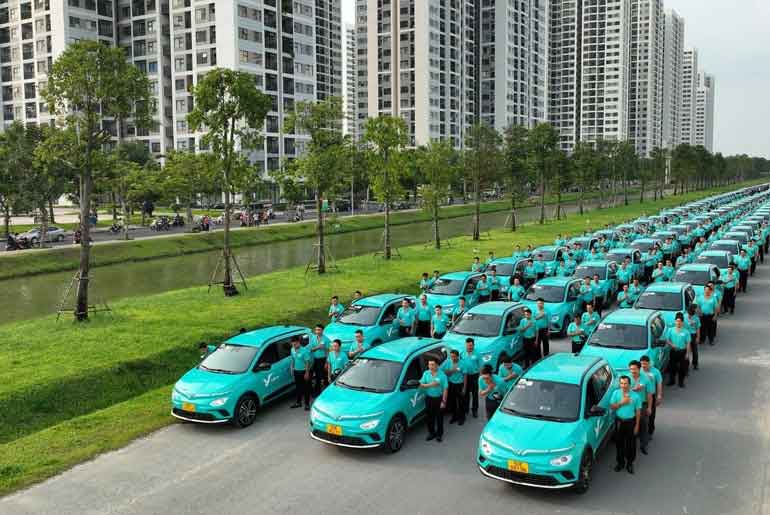The local Institute for Development Studies (HIDS) has suggested constructing a standardized battery recycling facility or plant that can recover up to 95% of the precious metals in EV batteries as part of a strategy to convert 400,000 automobiles in Ho Chi Minh City to electric vehicles.
During a recent press conference on the socioeconomic status of the city, the Center for Economic Application Consulting at the institute provided this information. In light of HCMC’s intention to start moving away from gasoline-powered cars in 2026, the discussion focused on the problem of how to manage the old batteries from 400,000 electric vehicles.
The proposal states that by 2026–2027, the city hopes to switch 80% of its 400,000 ride-hailing drivers—or around 320,000 drivers—to electric motorcycles. The city will keep helping the remaining 20% by 2028 by implementing measures including reduced registration fees, VAT exemptions, and preferential lending schemes.
In order to cut emissions and transition to a clean, green, and smart city, HCMC plans to propose a total ban on gasoline-powered two-wheelers used for transportation services by 2029 and switch to electric vehicles exclusively.
But several important questions come up: When the enormous amount of spent batteries reaches the end of their lifespan, what will happen to them? What effects will this have on the environment?
Le Thanh Hai, the center’s director, addressed the issue by pointing out that Vietnam already has an electric car battery production facility in the central province of Ha Tinh, which has invested more than VND6 trillion ($229.3 million) in total. Additionally, the nation and Li-Cycle, a well-known international recycling firm for electric car batteries, have inked a deal.
The agreement addresses research and supply options for recycling EV batteries at the end of their useful lives. The partner will rely on Southeast Asian technology or international facilities for processing if Vietnam does not make investments in domestic recycling infrastructure.
Hai further explained that EV batteries contain rare and valuable metals such as cobalt, nickel, manganese, and lithium, making recycling essential. Battery recycling technologies today have advanced significantly, allowing for the recovery of 90-95% of battery materials. As the number of EVs increases, so does the demand for batteries – driving the growth of battery recycling efforts.
In terms of extending battery life, one current approach is repurposing end-of-life batteries for solar energy storage systems, power supply for factories, or even as materials for manufacturing solar panels – an increasingly viable technological direction.
The Department of Science and Technology has been assigned to collaborate with the Department of Industry and Trade in order to create a comprehensive strategy that addresses possible hazards. There has been public discussion on the internet on the hazards of fire and explosions when comparing EVs with gasoline-powered vehicles; nevertheless, definitive findings still need to be confirmed.
However, Hai noted that battery technology is developing quickly and that safety regulations are getting more stringent.



